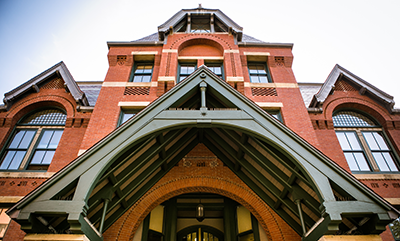On Foundational Privilege.

来
我
Some additional words on the power of money to confer privilege. In the US, we are fortunate enough to enjoy wealth on a large scale. In terms of nominal GDP, the US currently has the largest economy on earth. Our collective wealth translates into privilege in several ways. It gives us tremendous economic leverage over other nations, allowing us to impose economic sanctions on countries whose behavior we seek to change. It also empowers us to invest in a strong military, with the capacity to safeguard American interests all over the world. Finally, our economy gives us a greater say in world affairs. Not only are lower-resource countries denied these privileges, they are particularly vulnerable in times of global financial crisis. International trade policies favoring wealthier nations have done much to maintain this imbalance of advantage.
How conscious are we of our privileged position in the world? Not particularly, it would seem. Despite our improving economy and greater diversity and tolerance, a recent poll reported that 69 percent of Americans are dissatisfied with “the way things are going in the United States.” Our attitudes toward the privilege conferred by race are similarly skewed. White Americans, for example, have historically enjoyed tremendous privilege in this country, and still do. However, economic hardship, poor health, and an increasingly diverse society have led a large and vocal segment of the white population to believe that their privilege is being taken away. And while efforts to acknowledge white privilege are increasingly common in the media and on our college campuses, such efforts can be met with ambivalence, or even backlash.
Despite these difficulties, an acknowledgement of privilege is key to the work of public health. If we wish to work with communities, and create sustainable programs that make a difference, we must be sensitive to the fact that we often come to these populations at an economic advantage. We are students, faculty, and staff at an elite university, which means that many of us, although certainly not all of us, come from a middle-class or wealthy background. In a sense, our privilege is reflected in our academic offerings themselves. Our knowledge base is the product of generations of public health scholarship and practice. This accumulated wisdom comes to us as an inheritance; it is a gift. We did not necessarily do anything to deserve it, but it is ours nonetheless.
Th
在
As we reflect, then, on how many of our advantages come to us unearned, we are able to perceive how the disadvantages of others can likewise be unearned—an important realization in a society that often stigmatizes misfortune, or ascribes it to moral failing. When we are able to see our privilege fully, we are then in a position to look past it, to view our society from behind the veil of ignorance—where our advantage is no longer a given—and see just how harmful the consequences of imbalance in privilege actually are.
I hope everyone has a terrific week. Until next week.
Warm regards,
Sandro
Sandro Galea, MD, DrPH
Dean and Robert A. Knox Professor
Boston University School of Public Health
Twitter: @sandrogalea
Acknowledgement: I am grateful to Professor Sophie Godley, Paola Peynetti Velazquez, and Eric DelGizzo for their contributions to this Dean’s Note.
Previous Dean’s Notes are archived at: /sph/tag/deans-note/
Comments & Discussion
Boston University moderates comments to facilitate an informed, substantive, civil conversation. Abusive, profane, self-promotional, misleading, incoherent or off-topic comments will be rejected. Moderators are staffed during regular business hours (EST) and can only accept comments written in English. Statistics or facts must include a citation or a link to the citation.